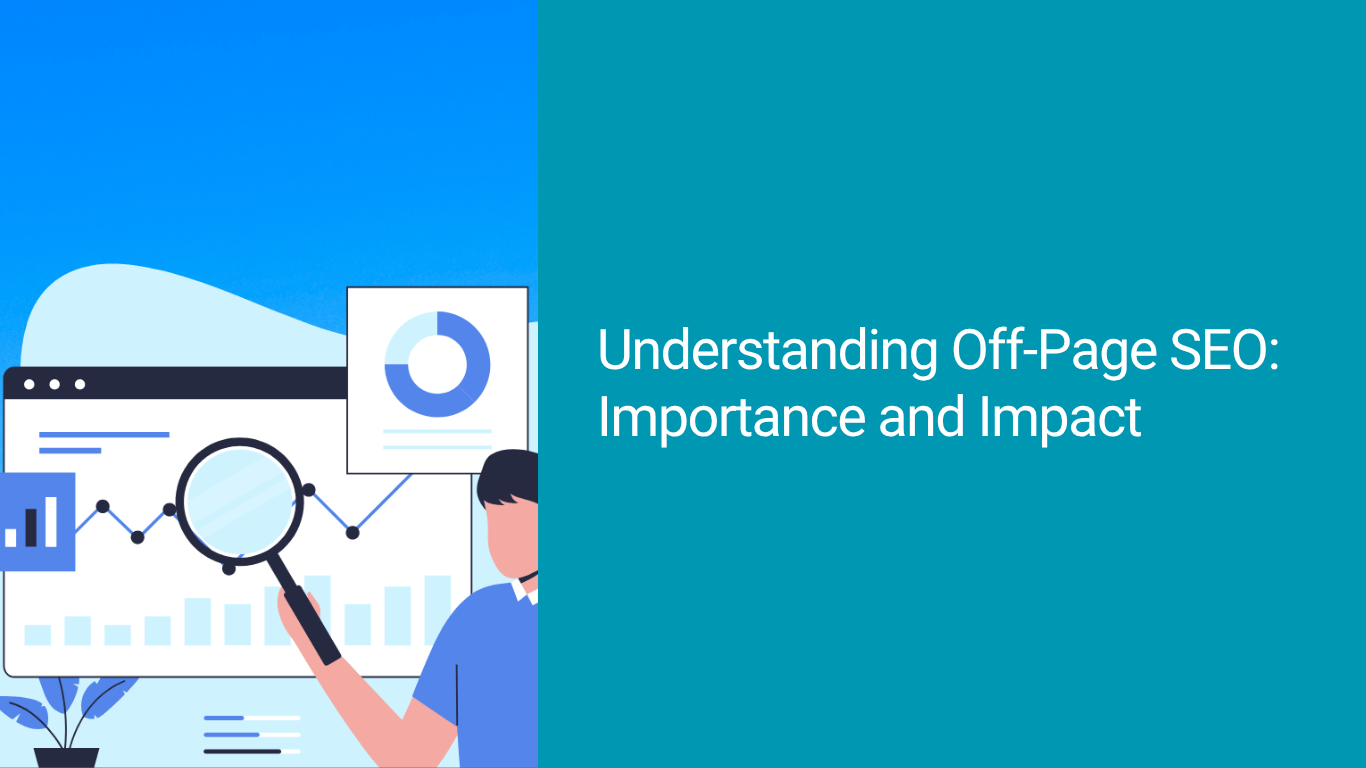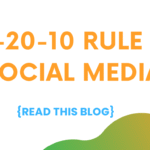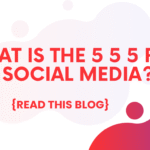
Understanding Off-Page SEO: Importance and Impact
Introduction to Off-Page SEO
Off-page SEO refers to all activities conducted outside of a website that influence its visibility and ranking in search engine results pages (SERPs). While on-page SEO focuses on optimizing individual pages and their content to enhance user experience and relevance, off-page SEO encompasses a broader range of tactics that contribute to a site’s authority and credibility within the digital landscape. The distinction between these two elements is critical for a holistic SEO strategy, as both work in tandem to improve search engine rankings.
Table Of Content
- Key Components of Off-Page SEO
- The Role of Backlinks in Off-Page SEO
- Social Media’s Influence on SEO
- The Importance of Online Reputation Management
- Influencer Marketing as an Off-Page Strategy
- The Relation Between Off-Page SEO and Search Rankings
- Measuring Off-Page SEO Success
- Future Trends in Off-Page SEO
Core activities of off-page SEO include link building, social media engagement, and enhancing online brand reputation. Link building, in particular, is a central component; it involves acquiring backlinks from reputable websites, signaling to search engines that your content is valuable and trustworthy. Each link serves as a vote of confidence, thereby improving the chances of higher SERP rankings. Meanwhile, social media activities can amplify this effect by driving traffic and encouraging user interactions with the content.
Furthermore, off-page SEO also encompasses activities such as influencer marketing, where collaborations with industry leaders can increase brand visibility and foster trust among target audiences. Another critical aspect is online reputation management, which ensures that positive information about a business is presented effectively and that any negative content is addressed promptly. Together, these strategies play an essential role in enhancing a website’s overall digital presence.
In today’s competitive online marketplace, understanding and implementing off-page SEO strategies is not merely advantageous but essential. As search algorithms evolve, the significance of off-page elements will only increase, making it imperative for businesses to adopt a comprehensive approach to both on-page and off-page optimization for sustained success in digital marketing.
Key Components of Off-Page SEO
Off-page SEO encompasses a range of strategies and elements that enhance the visibility and authority of a website beyond its on-page content. One of the fundamental components of off-page SEO is backlinks. Backlinks are links from external websites that point to a page on your site. Search engines view these links as votes of confidence, signifying that your content is valuable. The quality and relevance of the linking site greatly affect the link’s impact, making it essential to earn backlinks from reputable and authoritative sites within your niche.
Another important aspect of off-page SEO is social media engagement. Social platforms such as Facebook, Twitter, and Instagram provide avenues for websites to connect with their audience, share content, and generate traffic. Increased social media interaction can lead to higher brand visibility and traffic, positively influencing search rankings. Companies should focus on creating shareable content and engaging actively with their followers to foster this connection.
Influencer marketing also plays a crucial role in enhancing off-page SEO. Collaborating with influencers in your industry can expand your reach and introduce your brand to new audiences. Influencers have established trust with their followers, and when they endorse a product or service, it can significantly impact consumer perception and website traffic.
Moreover, brand mentions contribute to off-page SEO effectiveness. Unlinked brand mentions, while not traditional backlinks, indicate to search engines that your brand is recognized and discussed within the digital space. This can enhance your site’s authority over time.
The Role of Backlinks in Off-Page SEO
Backlinks, or inbound links, are hyperlinks that direct a user from one website to another. They serve as a pivotal component of off-page SEO, signaling to search engines the validity and credibility of a website. When a site links to another, it effectively vouches for the content, suggesting to search engines that the linked website holds valuable information. The accumulation of backlinks significantly influences a website’s authority and ranking in search engine results pages (SERPs).
Backlinks are assessed based on both their quality and quantity. However, it is crucial to emphasize that quality outweighs quantity; a handful of backlinks from reputable and authoritative sources can have a more substantial impact than numerous links from low-quality sites. High-quality backlinks contribute to a site’s link equity, which is the value passed from one site to another, enhancing the likelihood of improving a site’s SERP standings. Search engines consider various factors, such as the domain authority of the linking site and its relevance to the content being linked, when determining the quality of backlinks.
There are several types of backlinks, including natural links, manually built links, and self-created links. Natural links occur organically when other websites link to one’s content due to its worthiness. Manually built links are those generated through outreach, where one actively seeks to have their content linked by other relevant websites. Self-created links exist when individuals create links through forums, blog comments, or online directories. It is essential to focus on acquiring backlinks from sources that maintain high standards of content, as this fosters trust and can lead to long-term improvements in search visibility.
Social Media’s Influence on SEO
Social media has emerged as a significant factor affecting off-page SEO strategies. The correlation between a robust social media presence and enhanced search engine optimization cannot be ignored. Social platforms, including Facebook, Twitter, LinkedIn, and Instagram, serve not merely as venues for social interaction but also as potent channels for driving traffic to websites. By sharing content across these channels, brands can engage a broader audience, encouraging users to visit their sites and interact with their offerings.
A strong social media presence can lead to an increase in the number of backlinks to a website, which is an essential aspect of off-page SEO. When content is shared on social media, it is more likely to be seen by influencers and industry professionals who may link back to the original source. This organic growth of backlinks enhances the credibility of the website in the eyes of search engines, thereby improving its search rankings. Engaging content, when shared, has the potential to go viral, further amplifying its reach and effectiveness.
Moreover, social media engagement plays a critical role in audience retention and interaction. By actively engaging with followers through comments, discussions, and shares, businesses can create a community around their brand. This not only fosters loyalty but also encourages users to revisit the website, thereby contributing to lower bounce rates. Additionally, social signals, such as likes and shares, are increasingly being recognized by search engine algorithms as indicators of quality content, further underscoring the importance of integrating social media with SEO strategies.
To effectively leverage social media for SEO benefits, brands should adopt a consistent content creation strategy, focusing on high-quality, shareable content. Utilizing analytics tools can also help gauge what type of content resonates best with audiences, allowing for timely adjustments to social strategies.
The Importance of Online Reputation Management
Online reputation management (ORM) refers to the practice of monitoring, influencing, and maintaining a positive perception of a brand or individual on the internet. In the realm of off-page SEO, ORM is crucial as it directly impacts how a brand is perceived by its audience, ultimately affecting search engine rankings and organic visibility. A favorable online reputation fosters trust and credibility, which are essential elements for attracting and retaining customers in a competitive digital landscape.
One of the key techniques in ORM involves actively managing customer reviews. Positive reviews can enhance a brand’s image, while negative feedback, if not addressed properly, can tarnish it. Businesses must encourage satisfied customers to leave testimonials on various platforms, such as Google, Yelp, and social media. Responding to reviews, both positive and negative, demonstrates that a brand values customer feedback and is willing to engage with its audience. Timely and thoughtful responses can mitigate the effects of negative reviews and can even turn a dissatisfied customer into a loyal advocate.
Another vital aspect of ORM is monitoring brand mentions across the web. Tools such as Google Alerts, social media monitoring software, and reputation management platforms can help businesses stay informed about what is being said about them online. By actively tracking these mentions, organizations can quickly identify potential issues and address them proactively. This level of vigilance ensures that a brand’s narrative remains consistent and positive across various online channels.
In addition to managing reviews and monitoring mentions, creating and promoting quality content can significantly improve online reputation. Engaging blog posts, press releases, and social media content can enhance brand visibility, pushing negative content further down search results. By employing these ORM strategies, businesses can significantly enhance their off-page SEO efforts and build a strong, trustworthy online presence.
Influencer Marketing as an Off-Page Strategy
Influencer marketing has emerged as a pivotal off-page SEO strategy, enabling brands to amplify their reach and enhance their online presence. By collaborating with influencers-individuals who have established authority and a dedicated following within specific niches-businesses can significantly boost brand visibility. When an influencer promotes a product or service, it not only exposes the brand to a broader audience but also captures the attention of potential customers who trust the influencer’s recommendations.
The effectiveness of influencer marketing lies in its ability to improve brand credibility. Consumers tend to view influencers as reliable sources of information, and endorsements from them can lend legitimacy to a brand’s claims. This perceived authenticity can lead to increased trust, ultimately encouraging potential customers to engage with the brand or visit its website. Moreover, when influencers share content that links directly to a brand’s site, it can lead to a substantial increase in relevant traffic, thereby enhancing search engine rankings over time.
To leverage influencer marketing effectively, brands must carefully select partners who align with their values and target audience. It is crucial to assess an influencer’s engagement rates, audience demographics, and content style to ensure a synergistic partnership. Clear communication regarding campaign goals and expectations is also essential for a successful collaboration. Furthermore, maintaining transparency in sponsored posts is vital for authenticity and compliance with advertising regulations.
Incorporating influencer marketing into an overall off-page SEO strategy can yield significant benefits. By leveraging the influence of trusted figures in the marketplace, brands can not only increase their visibility and credibility but also attract high-quality traffic to their websites, positioning themselves for long-term success in the digital landscape.
The Relation Between Off-Page SEO and Search Rankings
Off-page SEO encompasses a variety of strategies that play a critical role in enhancing a website’s visibility on search engine results pages (SERPs). One of the most influential elements of off-page SEO is backlinking, where links from external sources direct traffic to a website. Search engines, like Google, utilize algorithms that highly value these backlinks as an indicator of a site’s authority and credibility. A higher number of quality backlinks typically translates to improved search rankings, as they signal to search engines that the content is valuable and relevant.
Additionally, social signals, which refer to the engagement and shares a piece of content receives on social media platforms, are becoming increasingly important in the off-page SEO landscape. While social signals do not directly affect search rankings, they contribute to a brand’s online presence and can lead to increased backlinks. A post that garners a substantial amount of attention and interaction can lead to other websites referencing the content, which is beneficial for link building.
Another pivotal aspect of off-page SEO is brand authority. Establishing a reputable and trustworthy brand presence can significantly impact search rankings. Search engines favor authoritative brands, as they are perceived as experts in their respective fields. This authority can stem from various factors including user reviews, expert endorsements, and consistent engagement across multiple platforms. The higher the perceived authority of a brand, the more likely its content will rank well on SERPs, further enhancing visibility and driving organic traffic.
In conclusion, off-page SEO is not merely an ancillary component of search engine optimization but rather a foundational element that directly influences search rankings. By focusing on building quality backlinks, engaging with social media, and enhancing brand authority, websites can achieve significant improvements in their SERP positions, ultimately leading to greater online visibility and success.
Measuring Off-Page SEO Success
Evaluating the effectiveness of off-page SEO initiatives is critical in understanding the impact of your marketing strategies. Various key performance indicators (KPIs) can help gauge this effectiveness, providing insights into how well your off-page efforts are enhancing your site’s visibility and authority. One of the primary indicators is domain authority, which is a metric developed by Moz that predicts how well a website will rank on search engine results pages (SERPs). A higher domain authority indicates a site that is more likely to rank well, thus reflecting the success of off-page SEO tactics such as link-building and content promotion.
Another significant metric to observe is referral traffic. This traffic comes from users clicking on backlinks that direct them to your website from external sources. Monitoring referral traffic can reveal which off-page SEO strategies are most effective at driving users to your site. Tools like Google Analytics can provide detailed reports on this metric, allowing marketers to assess the quality and relevance of their traffic sources.
Social shares also serve as a valuable KPI in measuring off-page SEO success. High levels of sharing on platforms such as Facebook, Twitter, and LinkedIn can increase visibility and indicate the engagement level of your content. The correlation between social media presence and organic search rankings has become increasingly prominent, making social shares a critical aspect of off-page evaluation.
Lastly, monitoring overall search rankings is vital. Regularly checking where your website stands for targeted keywords can help you understand the broader implications of your off-page efforts. Tools like SEMrush and Ahrefs can simplify this tracking process, providing comprehensive data to assess your ranking performance. In summary, focusing on these KPIs—domain authority, referral traffic, social shares, and search rankings—can give marketers a clearer picture of their off-page SEO success and guide future strategies.
Future Trends in Off-Page SEO
The landscape of off-page SEO is continuously evolving, driven by advancements in technology and changes in user behavior. As we look to the future, several key trends are anticipated to significantly impact off-page optimization strategies. One of the foremost trends is the increasing emphasis on content quality. As search engines like Google continue to refine their algorithms, the importance of high-quality, relevant content will only grow. This shift means that websites must focus on creating engaging, informative, and well-researched content that resonates with audiences, thereby fostering natural backlinks and social shares.
Additionally, the integration of artificial intelligence (AI) and machine learning into SEO practices is becoming more prevalent. These technologies enable more sophisticated analysis of user intent and behavior, allowing marketers to tailor their off-page strategies accordingly. AI can assist in identifying high-value link-building opportunities, predicting emerging trends, and optimizing content for specific target demographics. This analytical approach not only enhances the effectiveness of off-page SEO efforts but also improves the overall user experience.
Furthermore, the future of off-page SEO will likely see a strong shift towards user experience (UX) and engagement as critical components of optimization. Metrics such as dwell time, bounce rates, and social interaction will increasingly influence search rankings. Websites that prioritize user engagement by offering seamless navigation, interactive content, and mobile-friendly designs will have a competitive edge in the digital landscape. As audience expectations evolve, businesses must adapt their off-page strategies to cultivate lasting relationships with users.
In conclusion, as off-page SEO continues to develop, the focus on content quality, AI integration, and enhanced user experience will shape the methods and approaches that marketers employ. Staying ahead of these trends will be essential for maintaining relevance and achieving long-term success in online visibility.






Thanks for keeping your posts clear and easy to read.